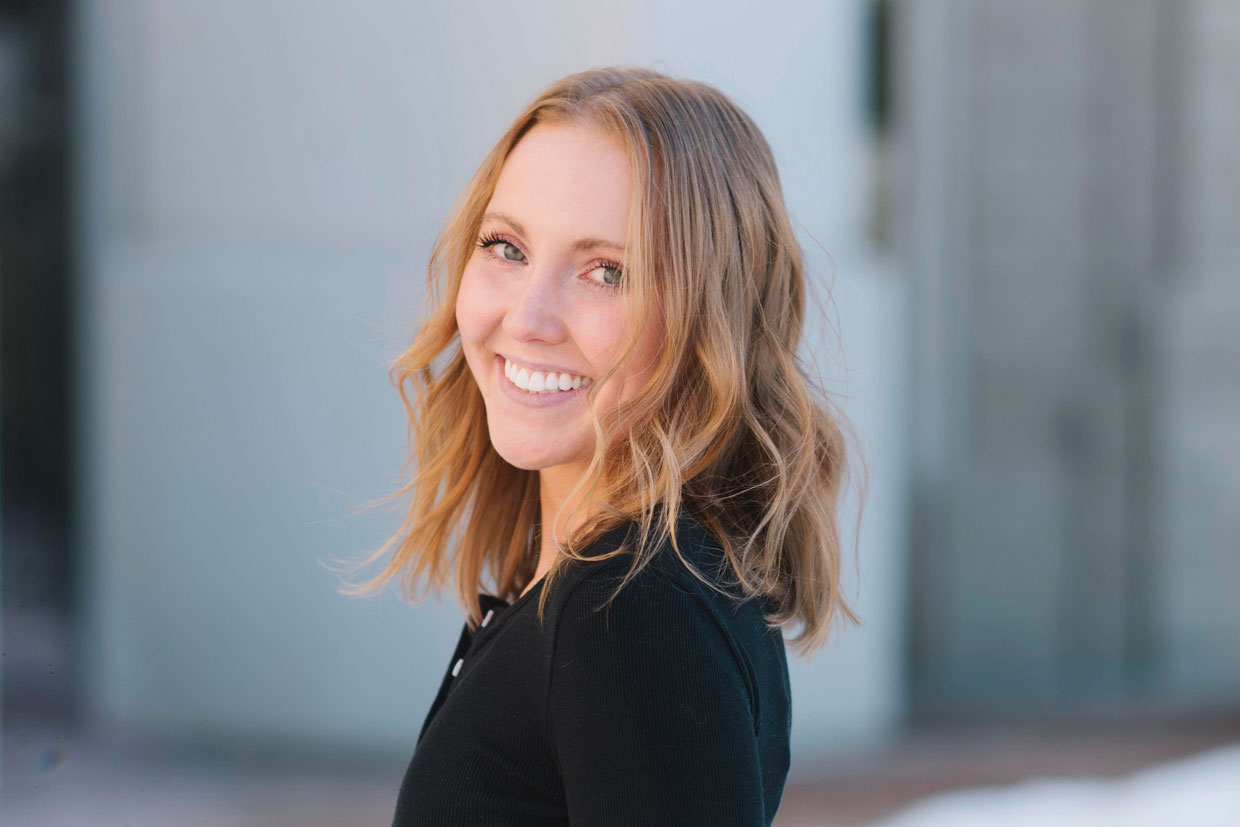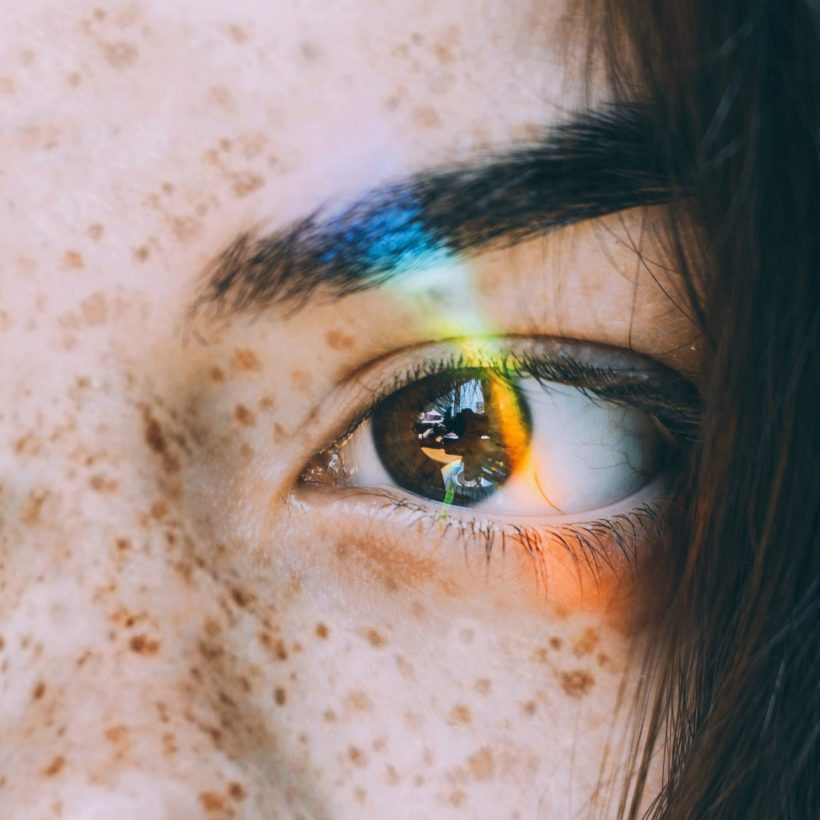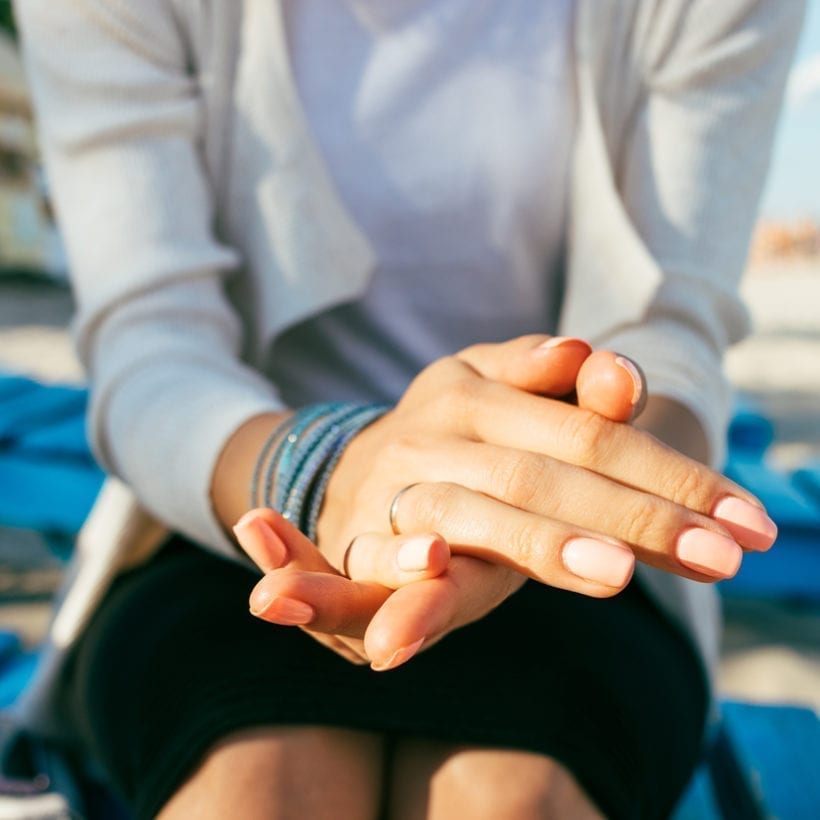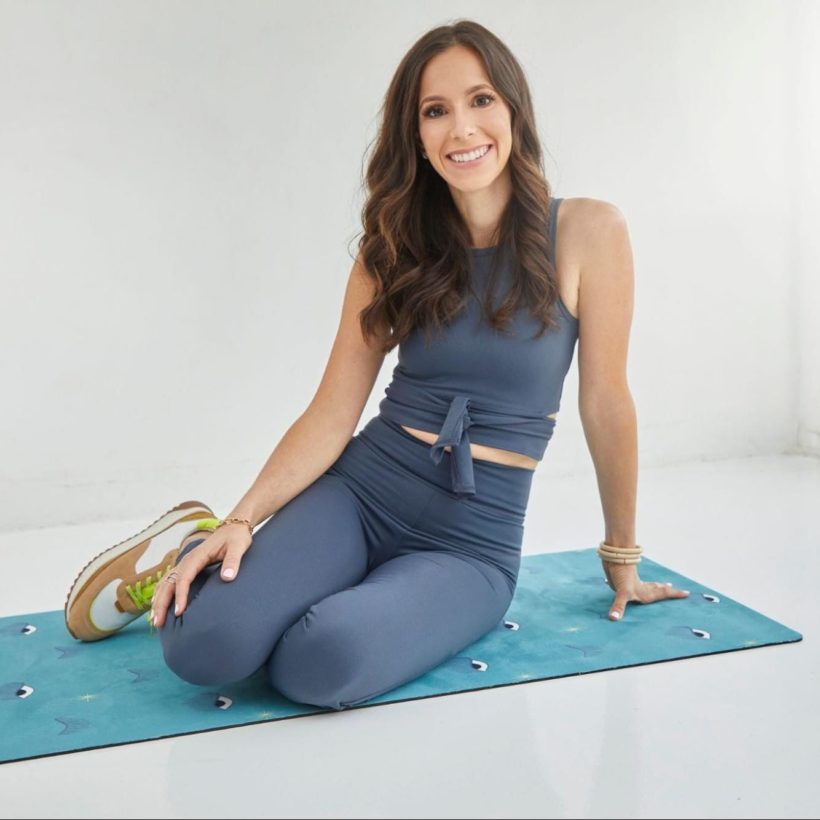Melanoma is one of the most common cancers in young adults. Even so, there are many myths surrounding the disease. We often associate melanoma with a malignant change to a mole or spot on your skin. Or that skin cancer always stems from not using enough sun protection or indulging in unsafe skin habits like tanning. But for Mariena Browning, founder of Browning Bakery, there was more beneath the surface — literally. With her survival story, we learn there’s not just one road to getting diagnosed with melanoma or how to recover from it. In honor of Melanoma Awareness Month, we asked her to share her journey and what she hopes other young people will learn from her experience.
Sunday Edit: How did you first discover you had melanoma?
Mariena Browning: I was diagnosed in the summer of 2018. I was 22 and I noticed a lump in my left groin that was pretty tender. I kept an eye on it, but it started to grow and the lumps multiplied pretty quickly over the span of a couple of weeks. I went to just my primary care doctor and she had me get an ultrasound and a biopsy then diagnosed me with metastatic melanoma. At the time, it was stage 3 because it was already in my lymph nodes. So I was referred to a hospital about three hours away from me when I did a full-body exam. They checked any mole that I had, they removed them, any suspicious spots on my skin. They looked for everything. There was no sign of a primary source. Melanoma can be genetic. It just unfortunately happened. My doctors told me that there was nothing I could have done to prevent it, or catch it earlier.
SE: How did you initially handle the news, especially being so young?
MB: I never really thought skin cancer would happen to me. My husband and I were both completely shocked because we always both thought that melanoma was just [topically] on your skin or a result of tanning beds or the sun. I’ve always been very conscious about how long I’m in the sun and using sunscreen. We were in a phase of our lives where we were thinking about starting a family, so this sidetracked things and we weren’t expecting it.
SE: What was treatment like from there?
MB: The good news is that I’m currently am NED, which means ‘no evidence of disease.’ It’s been a long time coming, though. Right after I was diagnosed, I noticed a new lump on my stomach. We had that biopsied and that came back with melanoma. So that moved me from a stage 3 — where it’s just in your lymph nodes — to a stage 4. So I was supposed to start a clinical trial, but because of the new lump, I wasn’t able to start. Instead, I took oral chemo pills every day. I did that for about seven to nine months. The side effects of the pills became too severe for me. I ended up in the hospital multiple times. I lost my vision at one point, but it came back. And so we had to stop taking those because the cancer was finding a way around it. It eventually spread to my brain where I needed brain radiation, then immunotherapy, and a couple of different drugs to help kill it. I’ve only been out of treatment since October of 2021. My doctors haven’t technically said I’m ‘cancer free’ but I don’t have evidence of the disease. I follow up with scans every three months to make sure things look okay.
SE: Where did you find support through this process?
MB: My husband and I are members of the Church of Jesus Christ of Latter-day Saints. We’re very religious, so we relied a lot on our faith to just kind of put it in God’s hands. Don’t get me wrong: I had moments where I was like, ‘this freaking sucks.’ It felt like it wasn’t getting better, but we both just kind of had this feeling like it was going to be okay. My husband’s a great support. And then both of our families live in the same city as us, and they were a lot of help. I had amazing doctors, too. I always trusted them and I felt like I was in good hands and that everything would eventually be okay.
SE: Was there anything you’ve learned about melanoma that surprised you?
MB: All of it. I had no idea it could spread to your lymph nodes or your brain. I didn’t know that it could just show up, not from the sun or not from a mole. So it was all totally new and a shock to me.
SE: Your skin must’ve went through many changes throughout treatment. How did your journey affect your skincare routine?
MB: Before I was diagnosed — and even now —I wouldn’t say I have a great skincare routine. I’ve always made sure to wear sunscreen every day. Since my skin is now a lot more sensitive, I try to use clean products. It’s still something that I’m learning more about. I never really struggled with acne or anything like that before cancer, but recently I have been. I don’t know if it’s like the birth control they had to put me on, or if it’s just my skin now because of all the changes. My skin’s also been very dry. I started using vitamin C in my routine and I switched from a regular face moisturizer to a facial oil.
SE: How did you deal with the changes to your hair?
MB: My hair became really fragile and thin during treatment. I cut it for the first time in two year this past fall because it was finally thick enough for me to be able to cut and style it. I took hair, skin, and nail vitamins and I would make sure to do scalp treatments. And, I avoided putting heat on my hair.
SE: How did you find self-care when everything became overwhelming?
MB: I loved to take baths. I took a lot of naps. My husband and I would go walk our dog, and just try and forget about things. For a while I was really nauseous and sick all the time to where I couldn’t drive to Target by myself. I couldn’t drive to the store or anything, you know? So the days where I was feeling well, my husband and I would make sure that we made an effort to go out and do something and make the best out of the day and bask in normalcy. I also started my baking business in the middle of treatment. My husband encouraged me to do it and I bake from my house — everything’s made to order.
SE: What do you hope others learn from your experience?
MB: I just hope that I can help shed some light and make people aware that it can happen to young people who aren’t going to tanning beds all the time, who aren’t laying out in the sun. And then I just want to help them feel not alone, because when I was diagnosed, and I don’t know why it was my initial reaction, but I would search on ‘melanoma survivors’ on Instagram and I couldn’t find anyone where there’s didn’t start with a mole, like mine. So I’ve kind of made it a goal to be open about it on my social media.
I think it’s important for other people who are going through the same process to remember that it’s not going to be forever. It will be hard, but things will get better. Make sure you trust your doctors. If you need a second opinion, get a second opinion — advocate for yourself.







